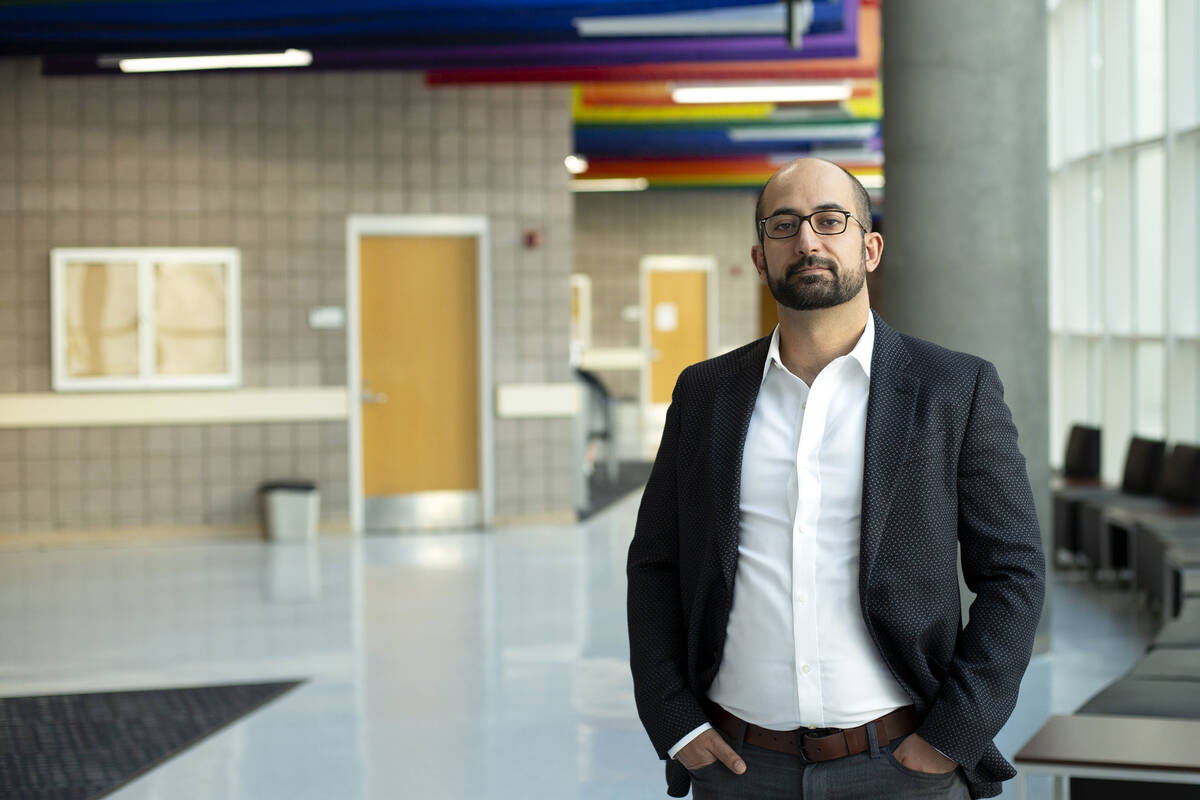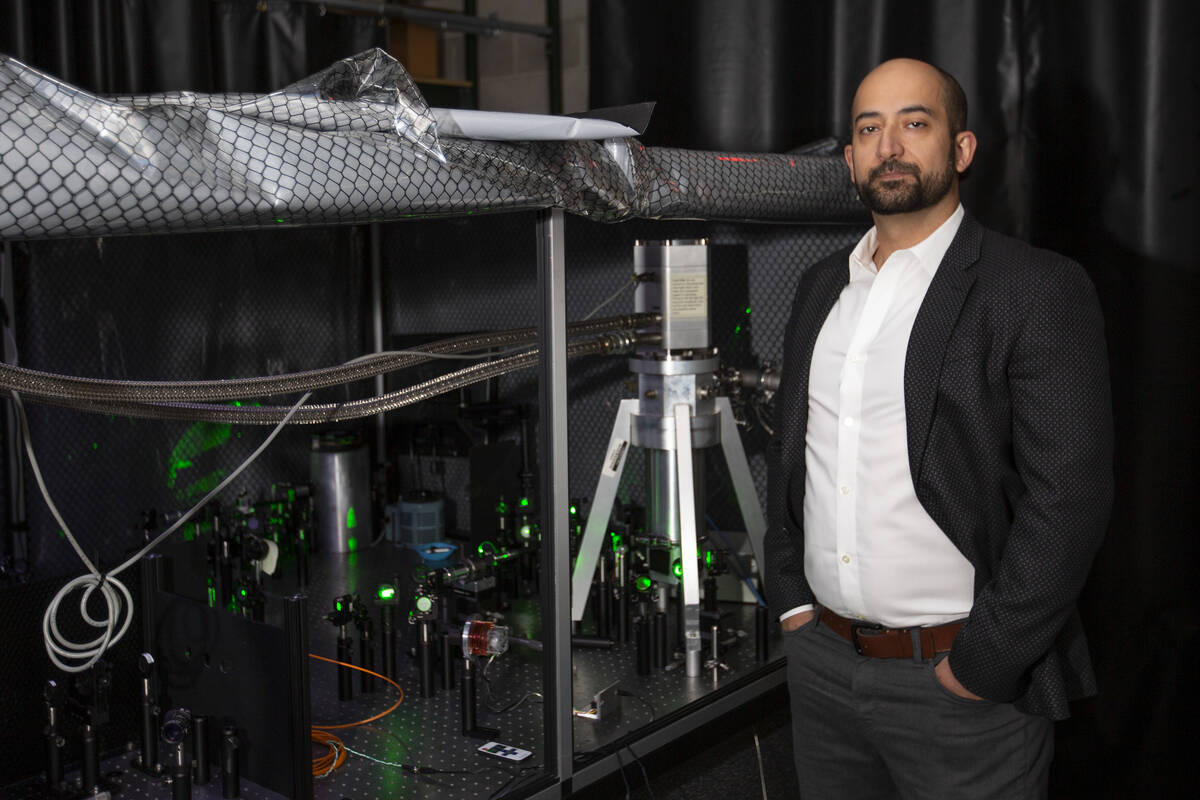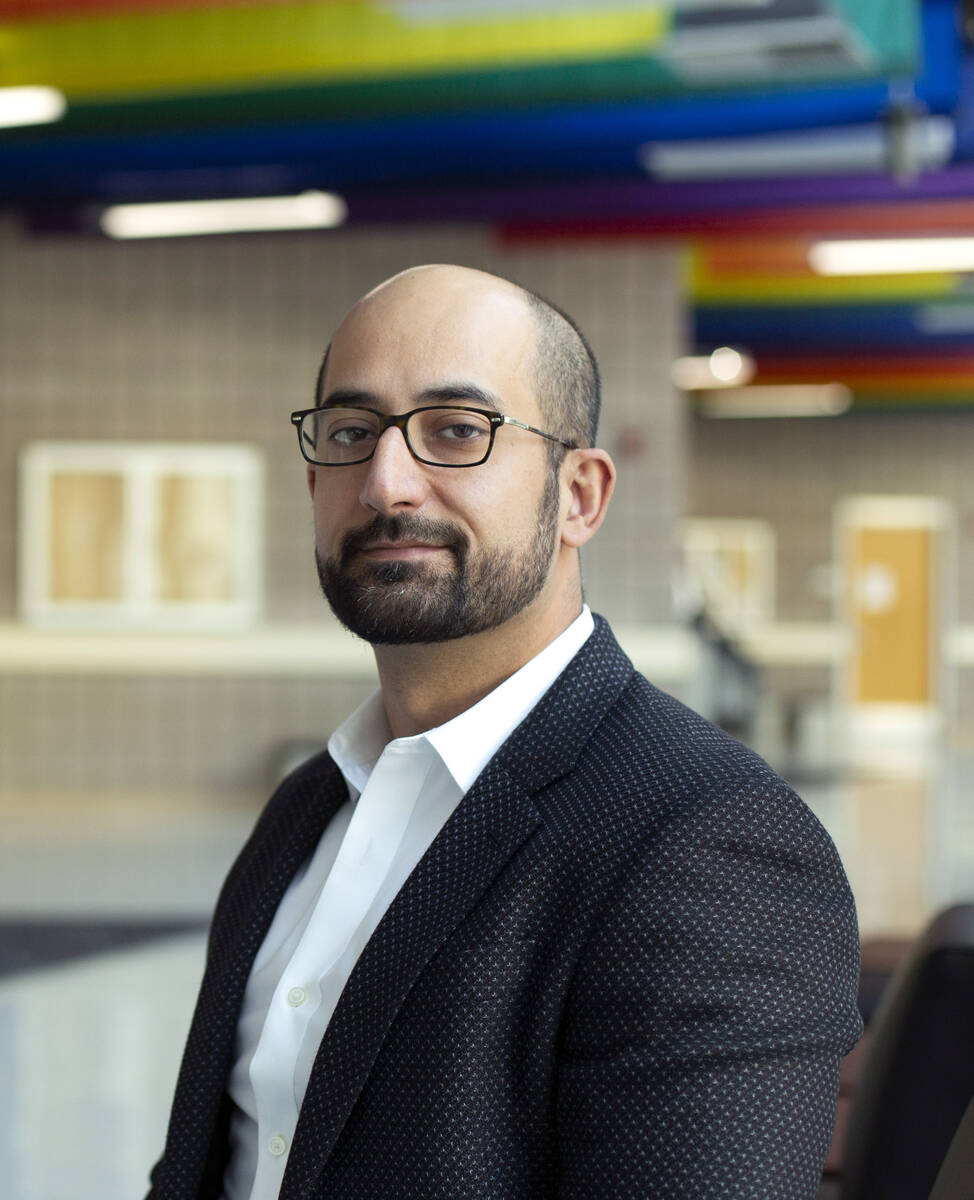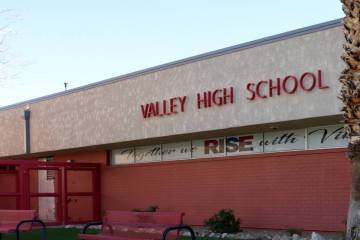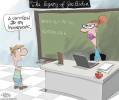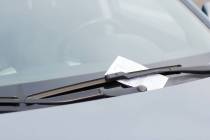UNLV physicist faces second retraction by scientific journal
A prominent UNLV physics professor is facing a second retraction by a scientific journal — this time, over allegations of data fabrication.
Ashkan Salamat, an assistant professor who also leads the Nevada Extreme Conditions Laboratory, and University of Rochester physicist Ranga Dias reported in 2020 that their research team established room-temperature superconductivity in a device that allows for compressing materials under extreme pressures.
A UNLV news release at the time said the discovery has “implications for how energy is stored and transmitted” and how technology devices are powered.
The research milestone garnered international headlines and accolades. The scientific journal Nature published a paper by the research team in October 2020.
But the journal retracted the paper in September 2022, saying questions arose after publication about how data was “processed and (analyzed),” according to a retraction notice.
And on July 25, Nature published an article on its website detailing how Dias and Salamat will soon have another paper retracted — this one published in 2021 by Physical Review Letters — because of alleged data fabrication.
Dias has denied the claims and Salamat didn’t respond to Nature requests for comment, according to the article.
UNLV assistant research professor Keith Lawler, who is assistant director of the Nevada Extreme Conditions Laboratory, is also listed among co-authors for the 2020 and 2021 papers.
Lawler didn’t respond to Las Vegas Review-Journal requests for comment by deadline Monday.
Salamat wrote via email to the Review-Journal: “My group and I are fully cooperating with the American Physics Society regarding their investigations into these matters.”
A UNLV spokesperson wrote Friday via email that the university is aware that the 2021 paper in Physical Review Letters is under review.
UNLV is “committed to maintaining the highest standards for research integrity campus wide, which includes compliance with all relevant regulations and policies,” the spokesperson wrote.
Salamat provided raw data for the 2021 paper, but investigators determined the numbers didn’t match what was included in the paper, according to Nature.
The scientific journal also said Dias has faced allegations of plagiarism involving his doctoral degree thesis.
Salamat, who has been at UNLV since 2015, told the Review-Journal in 2020 that the room-temperature superconductivity finding was an important milestone in fundamental science.
“Our ambitions are to lower the pressure and drive this into technology,” he said at the time.
Salamat and Dias co-founded a company called Unearthly Materials.
Salamat has a doctoral degree in physical chemistry from the University College London and did postdoctoral work at Harvard University and the European Synchrotron Radiation Facility in France.
He received an Early Career Award in 2019 from the U.S. Department of Energy’s Office of Science, which included a five-year, $150,000 annual award to go toward research.
Salamat was also a 2020 recipient of the Regents’ Rising Researcher Award, presented by the Nevada System of Higher Education’s Board of Regents.
Contact Julie Wootton-Greener at jgreener@reviewjournal.com or 702-387-2921. Follow @julieswootton on Twitter.



